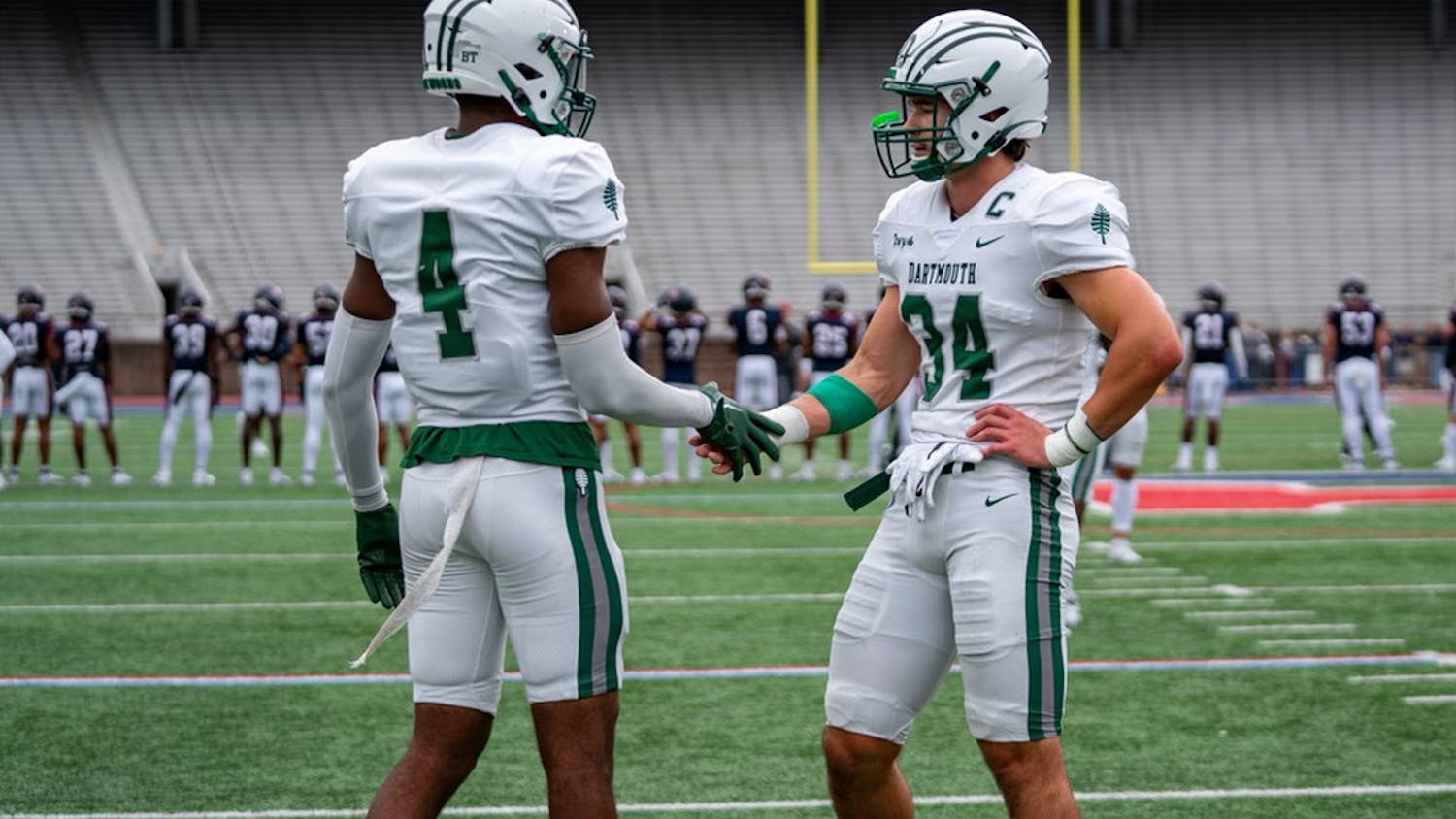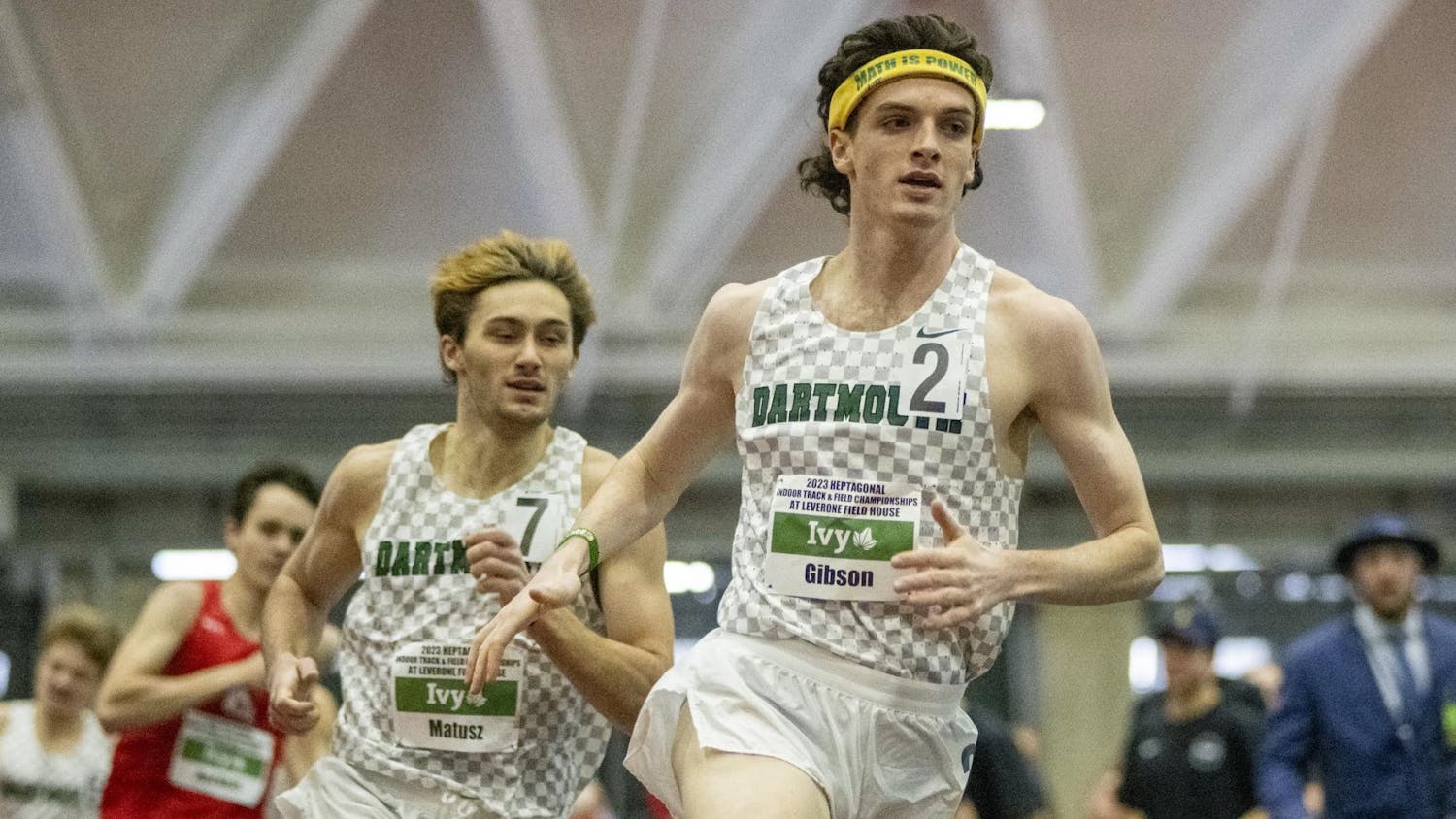Should college athletes, and Dartmouth athletes more specifically, be paid? Well, maybe yes to the first part, but I think not for Dartmouth students sorry, Big Green.
Paying student-athletes has been a hot topic ever since Big Ten Commissioner Jim Delany, a "power broker" of college sports (I didn't even know such a term existed, but apparently big shots in college athletics warrant a pretty awesome name), suggested a plan to bridge the gap between the money that Division I athletes receive and the cost of attending college.
Before I get into this I have to say a few things. First, this is one of my first slightly serious articles and it also just happens to be my last of the year. So if I screw up, no one will really know if I just stopped writing, or if The Dartmouth just took the column away from me.
Second, why write about this? I generally stick to making fun of sports (see my previous column), while maybe angering a few athletes along the way with inadvertent jokes and making countless jokes at my own expense. At least no one gets mad when you make fun of yourself you just kind of hurt yourself.
The real reason I am writing about this is the premise of my column, that great philosophical debate of noner versus athlete. The issue of whether or not to pay student-athletes who essentially view their college sport as a job only presents an even greater contrast between the two sides.
So back to the topic at hand. You may ask why even consider paying college athletes the word "college" implies student and amateur. Well, as one Division I lacrosse coach once said to me, "Your sport is your job. We do not expect you to do much else."
Sports literally take up an athlete's life, making my life as a noner seem that much better. From the 6 a.m. workouts to the nightly film sessions, these athletes probably end up spending more hours working at their sport then most people in the real world do at their job.
The thought of giving athletes money, however, is unfathomable to most people, given all the controversy and cheating that has gone on at many Division I institutions. Even more importantly, amateur status seems to inherently imply that student-athletes should not receive monetary compensation for their efforts.
Most administrators will not even consider discussing the topic. In fact, I once asked former acting Athletic Director Bob Ceplikas '78 what he thought about the subject. He laughed and said, "I am not even going to get into that."
It is kind of like me with college physics or chemistry. He was not going to touch the subject with a 10-foot pole.
The aforementioned power broker (just gets cooler every time you say it) carefully noted that he never used the word "pay" or "compensation." He simply suggested that scholarship athletes receive more money to bridge the monetary gap of going to college.
This is the catch, the reason why I think some student-athletes should get paid, but ours should not. Outside of the Ivy League, Division I schools have scholarship athletes. Sports happen to be a revenue generator for most major athletic programs and schools, and athletes deserve a little bit more of that money. Think of it as an increase in the standard of living for people who have a very low-paying job without including illegal benefits, and yes, there are many they receive a scholarship and a small stipend. No one is saying to pay the kids thousands of dollars for the millions they bring in, just add to the stipend. Delany suggested rounding this added bonus to $3,000.
Dartmouth falls into an interesting place here. The athletes certainly do have jobs. Ask any of them how much time they spend on their sport a week, even in the off-season, and you will get the point. But because we are in the League, they do not even get scholarships. Moreover, Dartmouth puts heavy stress on academics, and athletics are a secondary concern.
I am not saying that a student-athlete at a powerhouse school like the University of Miami is not also there to get an education, but there is a difference.
I do not claim to know all of the issues and maybe a small stipend is necessary for our athletes. But as I see it now, the Athletic Department is a self-sustaining part of the College that does not bring extra millions to the school. And let's face it, no one is applying to Dartmouth solely because of how well our hockey team does.
Or maybe I am just saying this for more personal motivations. Because it would really hurt my reasoning for being a noner if athletes at this school got paid.



